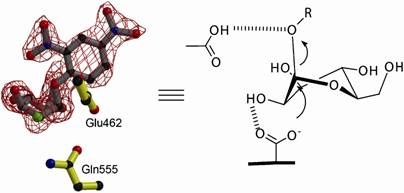Nanotechnology Breakthrough For IBN
Advertisement
Researchers at the Institute of Bioengineering and nanotechnology (IBN) have developed a new method to control both sized and morphology of nanoparticles. The technique, called fluorocarbon-mediated synthesis, is able to produce nanoparticles of 50-300 nm and tuneable pore sizes of 5-30 nm. "This is the first time that we have been able to control both the size of the particles, as well as the pores. Previously scientists have been successful in only one of the two," said Prof. Jackie Ying, Executive Director of IBN, who worked on the project, with Research Scientist, Dr. Yu Han. Prof. Ying and Dr. Han used a simple wet-chemical technique, to create a variety of nanoparticles with enormous surface areas, and well-defined pore sizes and structures. "This technique involves the use of two types of surfactant," said Dr. Han. "The tri-block copolymer surfactant act as the supramolecular template for the mesostructure, and did not consider using another surfactant for controlling the particle size and morphology."
IBN's breakthrough was recently featured in the journal Angewandte Chemie. A U.S patent has been filed on the invention and already the institute is in discussion with pharmaceutical companies on using these nanoparticles for various applications. IBN hopes that their invention will be commercialised within the next two years.
One important application is for the production of pure chiral drugs. While these chiral drugs exist in 'left-handed' and 'right-handed' molecules, only one molecule results in a therapeutic effect. Current methods use catalysts to selectively synthesize the preferred molecule. However these catalysts exist in a liquid phase, making it difficult for them to be separated and resued. To solve this problem, Prof Ying's group has developed a novel method, using the nanoparticles created by their technique, to immobilize the catalysts. This turns them into a solid form, which can be easily recovered and reused.
These nanoparticles could be used in a range of other applications, which involve therapeutic treatments like targeted drug delivery or gene therapy. "Ultrafine mesoporous particles would be very useful in catalysis and gas adsorption, since they would provide greater pore accessibility and facilitate molecular diffusion. Because of the presence of nano-sized and tunable pores, these porous nanoparticles could also act as the best matrix for the synthesis of quantum dots and magnetic nanoparticles in functional materials and bioimaging applications. They could also act as carriers for drugs, genes and proteins for novel biomedical applications, since the pore size matches the dimension of these moelcules very well," said Dr. Han.
Other news from the department science
Most read news
More news from our other portals
See the theme worlds for related content
Topic world Synthesis
Chemical synthesis is at the heart of modern chemistry and enables the targeted production of molecules with specific properties. By combining starting materials in defined reaction conditions, chemists can create a wide range of compounds, from simple molecules to complex active ingredients.

Topic world Synthesis
Chemical synthesis is at the heart of modern chemistry and enables the targeted production of molecules with specific properties. By combining starting materials in defined reaction conditions, chemists can create a wide range of compounds, from simple molecules to complex active ingredients.





























































